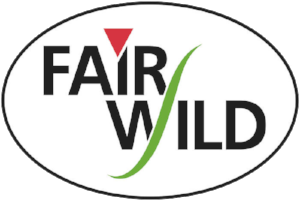The FairWild Standard 3.0: Simplifying Complexity and Expanding Inclusion to Wild Plants, Algae, and Fungi
Today marks a pivotal moment in the pursuit of sustainable and ethical business practices for wild harvested ingredients as we proudly launch The FairWild Standard Version 3.0 - less complex, more practical, and user-friendly, with a broader scope of ingredients, including wild plants, algae, and fungi.
Replacing the previous Version 2.0 (FairWild Foundation, 2010), The FairWild Standard 3.0 is an embodiment of collective wisdom and experience contributed by numerous stakeholders engaged in its implementation. This standard plays a crucial role in biodiversity conservation through sustainable use, providing a robust certification system that ensures (and assures) ethical and responsible practices across three dimensions of sustainability: ecological, socio-cultural, and business.
"Wild harvesting has enormous potential to make a positive contribution to biodiversity conservation, by embedding the sustainable use of wild species into rural landscapes and economies. With this revised Standard and certification system the FairWild Foundation is providing a valuable framework to harness the positive energy of business in this endeavour - as envisioned under the Convention on Biological Diversity. With the commitment and hard work of our many collaborators, we are proud to be making an impact through stewarding natural resources and generating livelihoods for wild collectors.”
- Franziska Staubli, Chair of the FairWild Board of Trustees
“A major aim of the revision process was to reduce complexity for our stakeholders, and create a practical and user-friendly system. Alongside the revision to our core documents, we are reforming the way that we work with businesses - increasing our focus on audit preparation, and provision of support services to ensure that businesses can implement FairWild successfully. This revision brings us into the modern day, ensuring our relevance, is much more accessible and most importantly of all, establishes a basis for continuous improvement, which we wholeheartedly commit to.”
- Deborah Vorhies, CEO of FairWild
Version 3.0 has 7 Principles and 24 Criteria addressing three themes: the ecological, socio-cultural, and business requirements for sustainable wild collection.
Key Highlights of The FairWild Standard Version 3.0, include:
1. Comprehensive Scope: The scope of the FairWild Standard (3.0) encompasses a wide range of natural products and ingredients originating from the wild collection of non-animal species. This includes wild plants, fungi, lichens, seaweed, and other algae collected from various terrestrial, freshwater, and marine areas. The standard explicitly excludes animals, animal parts, and animal products, ensuring a focus on plant-based, sustainable practices.
2. Applicability and Flexibility: Designed to be generally applicable to diverse geographic, ecological, cultural, business, and trade conditions, The FairWild Standard V.3. accommodates the unique challenges presented by wild collection scenarios. It addresses the commercial collection of wild materials while providing flexibility for scenarios involving previously cultivated, naturalized, invasive, and reintroduced species, as well as habitats with varying degrees of modification.
3. Species-Specific Certification: Emphasizing precision, FairWild certification is species-specific. While certain criteria apply universally to the entire scope of business operations, the requirements are tailored to the specific species and sites included within the certificate scope.
4. Evolving Document: Recognizing the dynamic nature of sustainability, The FairWild Standard is an evolving document. Periodic revisions will be based on the latest scientific knowledge, industry insights, and stakeholder feedback.
In launching The FairWild Standard Version 3.0, we remain steadfast in our commitment to fostering sustainable business practices, promoting positive relationships between humanity and nature, and contributing significantly to the conservation of global biodiversity.



